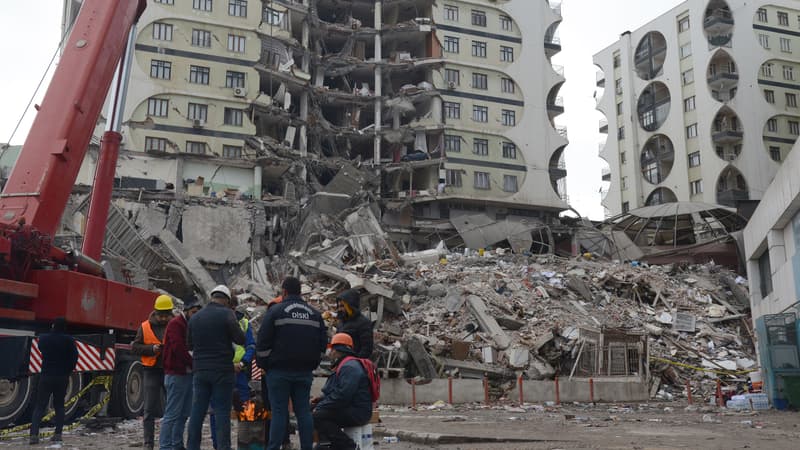Buildings collapsed, others emptied, rescue operations under the rubble… The two violent earthquakes that struck southeastern Turkey and Syria left more than 2,000 dead and more than 8,500 injured (provisional report). The quake also caused the collapse of nearly 3,000 buildings.
“One of the priorities is to establish security perimeters for all the buildings that we consider dangerous, to ensure that people are evacuated,” describes Patrick Coulombel, co-founder of the Emergency Architects Foundation.
In fact, even after the earthquake, the situation is still dangerous. The official Georisks website He explains that earthquakes may be “causing damage, ranging from the opening of cracks to partial or total collapse.” In the area of the earthquake, several buildings have been weakened and therefore could collapse in the next few hours. The risk of a strong aftershock that causes new landslides is also to be feared.
It is especially necessary that “when they fall, there is no additional damage or other buildings that could collapse”, explains Patrick Coulombel.
Because it is “a frequent phenomenon that a building collapses on another neighbor, who is quite healthy”, and who did not collapse with the earthquake.
French government website recommends, in the event of an earthquake, to stay “away from everything that could collapse (bridges, cornices, roofs, buildings, etc.), get out of buildings and not stand “under or next to electrical cables”, so that there are no additional victims in case of new landslides.
On the other hand, “the consequences of an earthquake can be the cause of significant contamination of natural environments linked to the breakage or failure of industrial equipment,” underlines Georisks.
“In addition, these phenomena can lead to the rupture of gas networks, a source of fires or explosions, causing a large number of indirect victims,” it is explained. The French government site thus recommends after an earthquake to cut off “water, electricity and gas: in case of a leak, open the windows and doors, flee and notify the authorities.”
The destruction of buildings obviously also has strong economic consequences: people who have lost their homes need to be rehoused, cleaned up and rebuilt, where possible.
Help for people trapped under rubble
For buildings that have already collapsed, teams are dispatched to clear the rubble and try to find people potentially trapped underneath. The situation is even more difficult as Turkey is currently in winter, with temperatures that can drop below 0°C at night.
“It’s something that will be extremely difficult,” says Patrick Coulombel. The survival of people under the rubble “will be very precarious if we do not intervene quickly.”
“One of the difficulties is that the emergency services themselves are somewhat unstructured due to the situation,” explains David Annotel, representative of the French National Federation of Firefighters, on our antenna. “It is important that the foreign emergency services in reinforcement can be on the scene quickly”, he declares.
Therefore, France must send 139 rescuers, Interior Minister Gérald Darmanin announced on Monday.
We must manage to restructure the emergency services so that “populations run as little risk as possible”, declares Patrick Coulombel, adding that it is also necessary that “emergency personnel are in acceptable situations, that they do not put themselves at risk”.
Source: BFM TV


